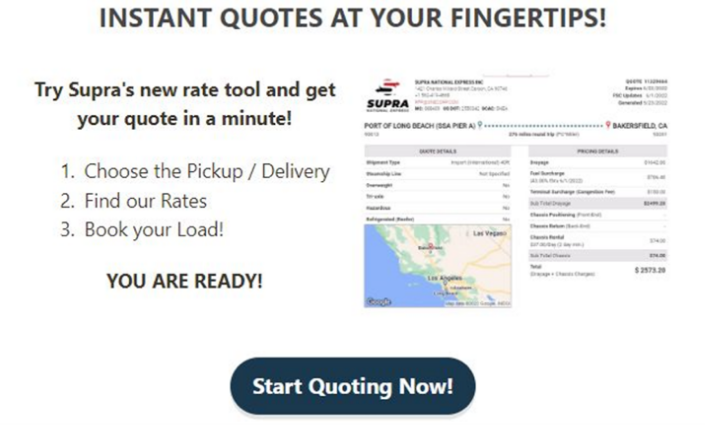Importing any item is a complicated endeavor, but as the loads get bigger, so do the complications. Bulk freight shipping requires certain considerations that are outside of typical transport details.
To properly address these heavy complications, importers and logistics managers must proactively contract heavy-hitting transportation teams. Shipper members gain priceless margins amidst rapidly changing supply chain disruptions by contracting with companies that have bulk storage capacity. How? Let’s dive in.
What Are Bulk Loads?
Bulk loads can be a bit confusing. According to Abdul Gafoor on LinkedIn, “bulk cargo is any good shipped unpackaged, not inside pallets or boxes, and in large quantities. The commodities can either be in liquid, granular, or solid form.” These bulk loads are filled with common household commodities, transported within containers or as break bulk. But still, what are the different types of bulk loads?
- Free-flowing liquid materials, such as oil, wine, and milk, are among the bulk products that the average American drives next to every day.
- The distribution of agricultural commodities, such as rice, wheat, and fertilizer aggregate, are transported in granular dry bulk.
- Solid bulk, most commonly described as break bulk, are typically oversized items that cannot be containerized.
- Break bulk items can include extra large shipments of drums, crates, and precious metals, or can be large items such as vehicles and airplane wings.
How Does Bulk Freight Shipping Work?
The process of bulk loads starts and ends with the familiar steps of loading and unloading. After the double hulls ensure a safe bulk transport, the carrier members pull the items off for drayage transfer. Once loaded onto a truck approved for the dimensional weight and type of the items, imported bulk loads are taken to bulk storage.
Bulk storage ensures that time and heat-sensitive essential items such as natural gas are not compromised during gaps in the shipment process. After its storage tenure, bulk loads are then picked up by (hopefully) exemplary trucking industry professionals for their long-haul journey. In ideal circumstances, one logistics company can support importers by completing each step of this process in-house.
The Risks of Bulk Cargo and Transportation/Storage
If bulk shipping works the way it is designed to, it is a seamless transfer of commodities from one location to another. However, the nature of items transported on bulk loads maintains a certain level of risk. Raw materials are easily damaged and agricultural products can be quickly compromised by unexpected weather elements. This indicates the need for a trustworthy storage location that can facilitate anything necessary to stabilize these important goods.
Due to the bottlenecked nature of California ports, West Coast importers need to have connections with local drayage companies and bulk storage facilities. Although load boards were created for a reason, they are unreliable for high-priority shipments such as bulk commodity imports. Delayed pickup can quickly accrue detention or demurrage costs since the size of bulk transport containers will always be more obvious than smaller containers that can get forgotten among backed-up ports.
How to Better Plan for Bulk Loads
Shippers and BCOs can’t sleep on their bulk transport plans, even though shipping vessels carry their loads while they sleep. With disruptions around every bend so shippers must consider the following to get the most out of bulk freight shipping.
- Know your container or break bulk load’s size and weight.
- Track vessel berth and expected release of containers from port.
- Have drivers ready to pick up bulk container goods on time.
- Shorten the distance between port and bulk cargo storage.
- Know what’s happening and when to expect your delivery
- Leverage street-turned containers to send empties back when a delivery is made.
- Use technology by Supra to do more with less, find loads, and avoid waste.
See How Supra National Express Distribution Can Boost Your Bulk Cargo Storage and Transportation Now.
Because bulk freight shipping is outside of atypical transport sizes, it’s imperative to understand the process and maintain accurate data every step of the way. By partnering with 3PLs and carriers who offer accurate communication, down to a monthly fuel surcharge update, shippers gain what they need to get the job done.
West Coast shippers – Supra is right there! Let us be your West Coast bulk shipping solution, from drayage to short-term storage and more. Start a conversation with Supra National Express today!
Get your quote now by trying Supra’s new Online Rate Tool too!
Or get in touch with Supra’s Sales Team at (424) 267-1155 or by email: rfp@snecorp.com

 Become A Partner Carrier
Become A Partner Carrier